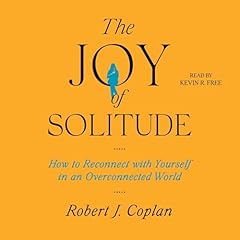
The Art of Solitude
Failed to add items
Add to Cart failed.
Add to Wish List failed.
Remove from wishlist failed.
Adding to library failed
Follow podcast failed
Unfollow podcast failed
 Prime members: New to Audible?
Prime members: New to Audible?Get 2 free audiobooks during trial.
Buy for $15.95
-
Narrated by:
-
Stephen Batchelor
When world renowned Buddhist writer Stephen Batchelor turned 60, he took a sabbatical from his teaching and turned his attention to solitude, a practice integral to the meditative traditions he has long studied and taught. He aimed to venture more deeply into solitude, discovering its full extent and depth.
This beautiful literary collage documents his multifaceted explorations. Spending time in remote places, appreciating and making art, practicing meditation and participating in retreats, drinking peyote and ayahuasca, and training himself to keep an open, questioning mind have all contributed to Batchelor's ability to be simultaneously alone and at ease. Mixed in with his personal narrative are inspiring stories from solitude's devoted practitioners, from the Buddha to Montaigne, and from Vermeer to Agnes Martin.
In a hyperconnected world that is at the same time plagued by social isolation, this book shows how to enjoy the inescapable solitude that is at the heart of human life.
©2020 Stephen Batchelor (P)2020 Yale Press AudioListeners also enjoyed...




















People who viewed this also viewed...


















Art of Solitude
Something went wrong. Please try again in a few minutes.
thoughtful and enlightening
Something went wrong. Please try again in a few minutes.
I enjoyed this book.
Something went wrong. Please try again in a few minutes.
Enjoyed listening to this book
Something went wrong. Please try again in a few minutes.
Enjoyed it totally
Something went wrong. Please try again in a few minutes.


